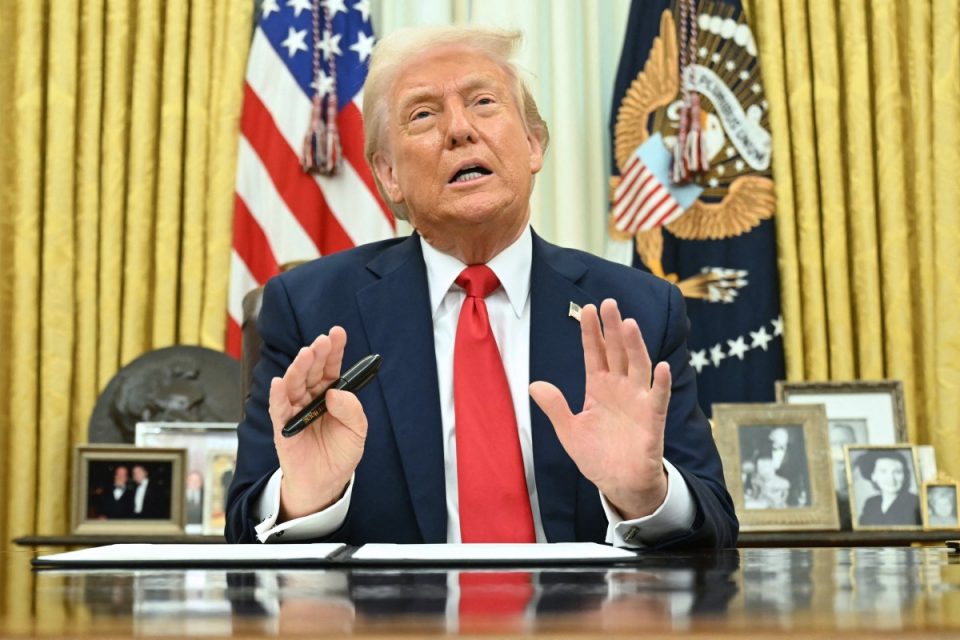The Chief Executive Officer of Ecobank Transnational Inc., Mr. Jeremy Awori, has called on Nigeria and other African countries to increase trade among themselves in order to reduce the possible damage from new tariffs introduced by United States President, Donald Trump.
Speaking during an interview with Bloomberg TV, Awori explained that the new US tariffs may soon take the place of the African Growth and Opportunity Act (AGOA)—a trade agreement that has helped African countries, including Nigeria, export products like clothes, textiles, and other goods to the US without paying heavy duties.
He said that depending too much on foreign markets like the US puts African economies at risk, especially when global policies change suddenly. According to him, boosting trade between African nations can help build a stronger and more resilient economy across the continent.
“Trade among African countries is still very low,” Awori said. “Now is the time to focus inward and take advantage of the African Continental Free Trade Area (AfCFTA). This will help us stand strong together, especially when facing global economic pressures like US tariffs.”
AGOA, which began in 2000, has supported nearly 30 African countries in exporting goods to the US duty-free. It has been especially important for sectors like textiles, leather, agriculture, and small-scale manufacturing. However, the US government under President Trump has recently introduced fresh tariffs targeting imports from several countries, including those in Africa. Experts fear this could reduce the benefits African nations get under AGOA if the trade terms are changed or cancelled.
Awori believes the solution lies in building stronger trade ties within Africa. He urged African leaders and business owners to look within the continent for raw materials, finished products, and market opportunities instead of always looking outside.
The Ecobank boss also pointed out that Africa has huge potential, including a large population, growing digital infrastructure, and increasing industrial capacity. “If we can connect these strengths across borders, we can grow faster and reduce our dependence on volatile global markets,” he said.
His comment comes at a time when Nigeria and many African economies are struggling with the impact of falling oil prices, forex shortages, and rising inflation. The new US tariffs are expected to affect African exports, further straining their already weak foreign exchange earnings.
Economists have warned that a shift in US trade policy could have a ripple effect, causing job losses, factory closures, and reduced investment in the African export sector. In response, several African trade experts and policymakers have started pushing for more support for AfCFTA to help open up trade routes across the continent.
AfCFTA, which officially kicked off in 2021, is designed to allow free movement of goods, services, and people across Africa’s 54 countries. However, implementation has been slow, with issues around infrastructure, border control, and harmonisation of trade rules.
In light of Trump’s recent policies, Awori’s message to African governments is clear: work together, trade together, and grow together. By doing so, he said, the continent can build internal strength and protect itself from unpredictable changes in global trade policies.
